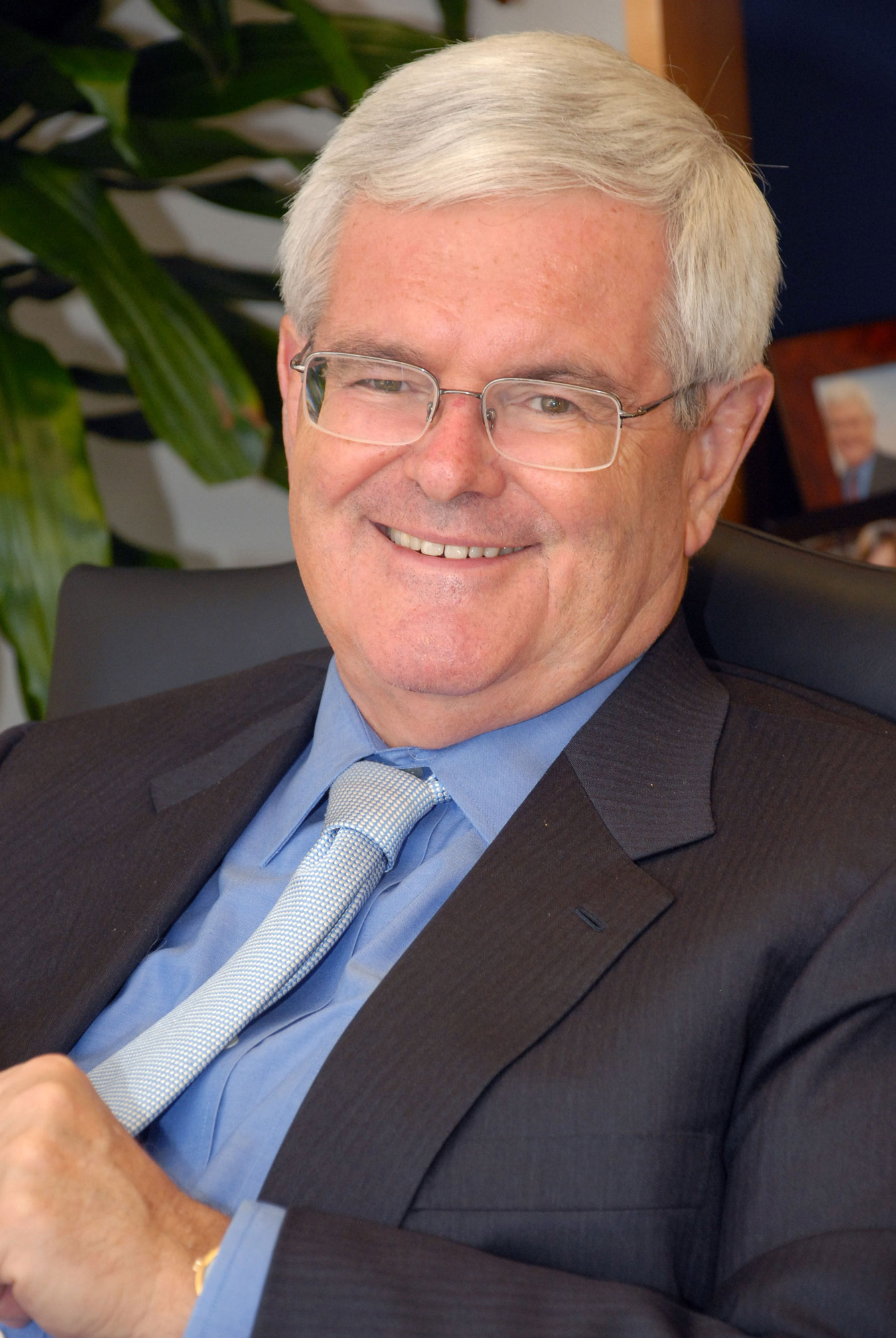America needs substantial bureaucratic reform at all levels of government to remain competitive in a global economy, Newt Gingrich, former speaker of the U.S. House of Representatives, said during his speech at the fourth annual Getzen Lecture on Government Accountability held April 7 in the Chapel.
The lecture, “Effective American Policy in a Dangerous World,” left little doubt that Gingrich, once the Republican leader who brought a minority party to the mainstream, would take aim at failed programs and attitudes inside and outside the Washington Beltway. He focused on public education, which he called the “second greatest threat to America” after terrorist attacks.
“If you look at what’s happening (in education) in India and China and then look at we’re doing, it’s obvious that we, as a nation, are aggressively preparing for the 1956 Olympics,” he said. “This is like the housing bubble. We have a learning bubble.”
Drawing from examples of statics-based programs that reduced crime in New York and Los Angeles and improved performance for the Oakland Athletics, he called for three-part reform, beginning with setting values then articulating a vision for change and doggedly collecting data.
“If you want to understand how to be effective at anything, you must start in a structured way by defining your values,” he said. “The implementation of real change involves will power.”
Gingrich, also an adjunct faculty member in the School of Law this semester, directed much of his talk to students, recommending books, asking questions about high school and warning them about the consequences of the ballooning federal deficit.
“For the students here, those who have been in high school in the last 10 years, I have an example of a way to drastically change the system. If you can graduate in three years, you get the cost of the fourth year as a scholarship [to college],” he said.
Gingrich represented Georgia’s sixth district from 1978-1998 in the U.S. House. The Getzen Lecture on Government Accountability is sponsored by the School of Public and International Affairs and the department of public administration and policy.


